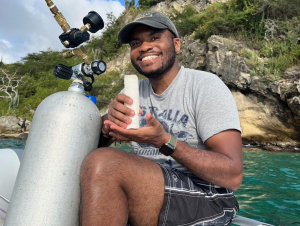To request a media interview, please reach out to experts using the faculty directories for each of our six schools, or contact Jess Hunt-Ralston, College of Sciences communications director. A list of faculty experts is also available to journalists upon request.
Latest News
Physicist Steven Chu was the first person appointed to the U.S. Cabinet after having won a Nobel Prize — and the first scientist to hold a Cabinet position. On April 26, he will deliver a public lecture at Georgia Tech on climate change and innovative paths towards a more sustainable future.
Five Georgia Tech College of Sciences researchers have been awarded CAREER grants from the National Science Foundation (NSF). These Faculty Early Career Development Awards are part of a five-year funding mechanism designed to help promising researchers establish a personal foundation for a lifetime of leadership in their field. The grants are NSF’s most prestigious funding for untenured assistant professors.
School of Chemistry and Biochemistry's Jesse McDaniel is creating a framework to predict chemical reaction rates, leveraging computer modeling techniques. Now, a new NSF CAREER grant will help him do so. “I am excited about the CAREER research because we are really focusing on fundamental questions that are central to all of chemistry,” McDaniel says about the project.
Agarwal’s award specifically focuses on his research into peptides, short strings of amino acids that make up proteins. “We’re making new types of peptides and modified peptides,” Agarwal explains. “Modifications in a lot of antibiotics that we use are actually peptides.”
Blumenthal, an assistant professor in the School of Mathematics, has been awarded an NSF CAREER grant continue tackling some of the most difficult questions in his field– those of chaotic fluid dynamics. Because Blumenthal’s work with fluid dynamics intersects with chaos and disorder, the impacts of his work range from weather prediction to how we model economics.
On the U.S. Virgin Island of St. Croix, the ruins of a Danish sugar plantation built from harvested coral bricks could be the key to understanding how and why the area was decimated by the 18th-century transatlantic slave trade. With funding from the National Geographic Society, researchers at the Georgia Institute of Technology and the University of California, Los Angeles (UCLA) will travel to St. Croix to analyze this coral. They hope to determine how coral mining, dredging, and reef erosion affected near-shore biodiversity, contemporary coral populations, and bathymetry or underwater depth. The project uniquely combines archeology and oceanography.







